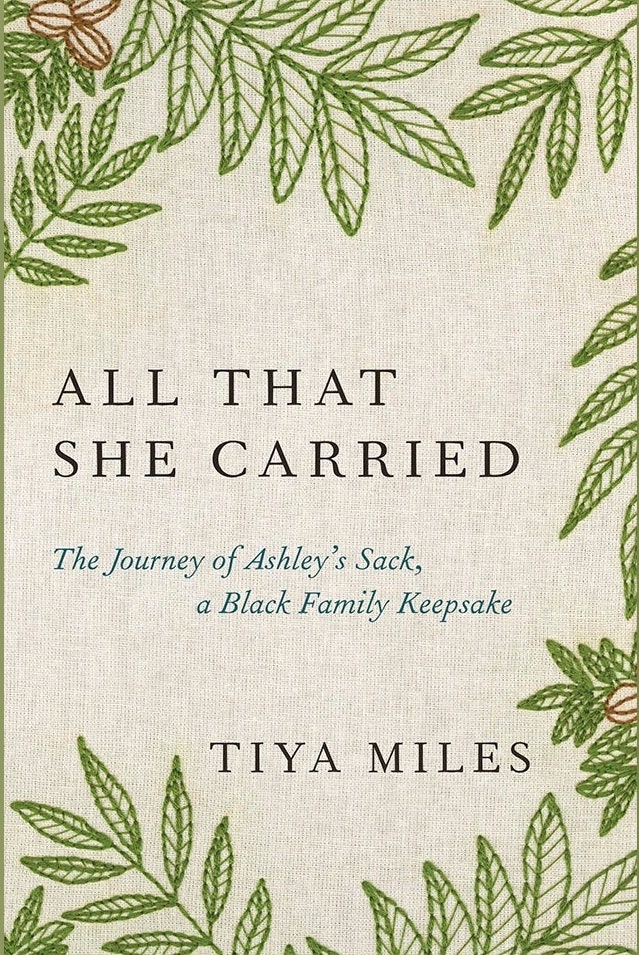
The Journey of Ashley’s Sack, a Black Family Keepsake”
By Tiya Miles
Random House, 2021
416 pages, hardcover, $24.99
“All That She Carried” by Tiya Miles humanizes captive Black people living in “the tear of humanity that was chattel slavery.” Set primarily in the antebellum south, Miles gives readers a tour of the plantations of white enslavers in South Carolina, detailing how infrastructure and society were shaped by the vast fields of rice and cotton cultivated through the stolen labor and knowledge of Black people ripped from their homelands in Central and West Africa and forced into a depraved system of incarceration and servitude that spanned generations. This system also laid the agricultural bedrock of the United States and the foundations for the pervasive racism still inflicted upon Black people in this country today.
The role of Black women — and their unique and specific plight as mothers, creators of life, and thus providers of more Black bodies which were cavalierly used by their enslavers — is centered in this book. Miles traces the story of an object bestowed upon 9-year-old Ashley when she and her mother, Rose, were brutally separated. Called “Ashley’s sack” by historians, this “black family keepsake” was passed on to Ashley’s granddaughter Ruth. We know this today because Ruth stitched an itemized list of the sack’s contents, as well as its story, onto the artifact itself with embroidery thread.
This sack and what it contained — a tattered dress, some pecans, a braid of Rose’s hair — are important clues to the inner lives of unfree Black women, whose narratives have been, by and large, erased from written history. In tracing the story of Ashley’s sack, Miles, who is a professor of history at Harvard University, interrogates records of all kinds — for what they say outright as well as what is omitted. From analyzing the household ledgers of plantation families and narratives written by the formerly enslaved to reflecting upon women’s crafts and “conjure bags,” Miles leaves no stone unturned in her search to understand the circumstances which led to Rose packing an “emergency sack” for her daughter on the eve of Ashley’s sale and why she chose the included items. (The chapter on pecans, called “Ashley’s Seeds,” dives into the domestication of this wild tree and the crucial horticultural efforts of an enslaved Black man named Antoine.) Miles also calls on the work of contemporary Black thinkers and her own legacy as a Black woman in America to fill the blank pages of history with this powerful matrilineal story, which transpired between the early 1800s and 1921.
Readers are entrenched in the harrowing world of the unfree and the “tyranny of slavery.” While this story is as horrific as it is true, it is also a story of hope. Through Miles’ well researched and poignant telling, we experience the ferocity of Rose’s love and the tenacious will of a mother who wants more than anything to keep her daughter alive. Miles also speaks to the universality of this story, calling slavery the “theft of the maternal.” She writes that Black Americans are “a people suffering from the loss of a motherland, a mother tongue, and a mother’s knowledge of our new names.”
“All That She Carried” is a painful and necessary read. In Miles’ words, “This book bears meanings about the burdens of being human in an inhumane world.”
– Holli Cederholm
